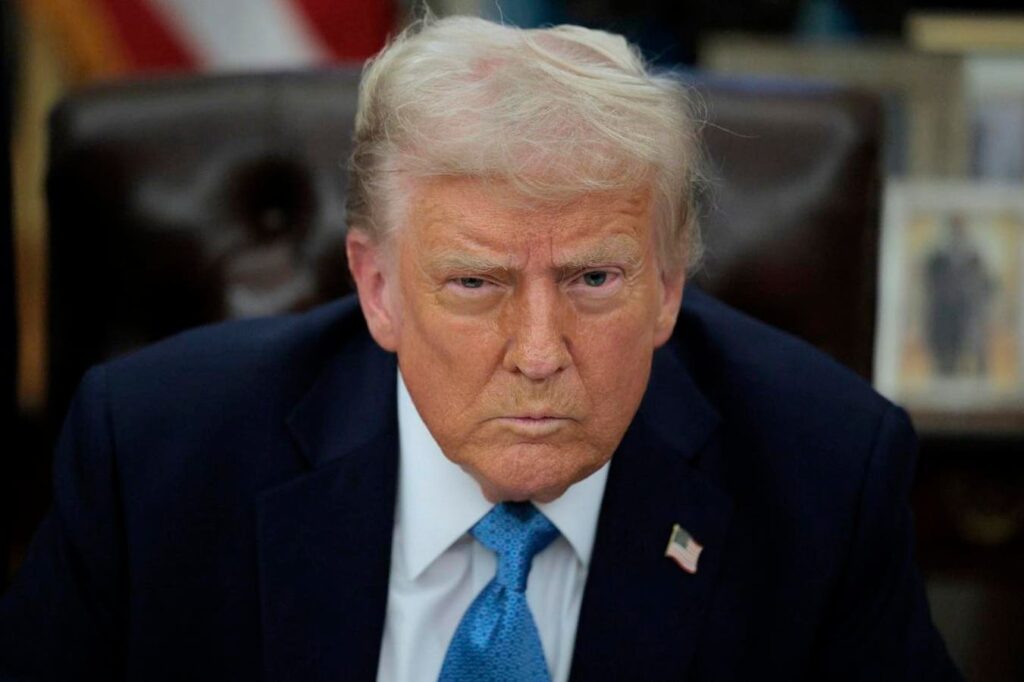Topline
President Donald Trump called for PBS and NPR to be defunded Wednesday, resuming attacks against public media as Republicans echoed the president’s wishes and accused the nonprofit media outlets of reporting with political bias and agendas.
Trump has repeatedly called for the defunding of NPR and PBS. (Photo by Chip Somodevilla/Getty … More
Getty ImagesKey Facts
The president called NPR and PBS “two horrible and completely biased platforms” in a Truth Social post Wednesday night, renewing a call to defund public media in the U.S.
Trump’s latest criticism came hours after the heads of NPR and PBS testified in a congressional subcommittee hearing about their reporting practices, facing criticism from figures such as Rep. Marjorie Taylor Greene, R-Ga., who called NPR and PBS “radical, left-wing echo chambers.”
Republicans called for an end to public funding for broadcasters during the hearing and repeatedly cited an essay from former NPR business editor Uri Berliner criticizing the outlet’s news coverage and an “absence of viewpoint diversity.”
NPR was pressed over its coverage of Hunter Biden’s laptop controversy, with Greene asserting the topic was underplayed by the outlet and NPR CEO Katherine Maher, who did not lead NPR at the time, saying “our current editorial leadership thinks that was a mistake, as do I.”
PBS was accused by Greene of featuring a drag performer during one of its kid shows, though CEO Paula Kerger said the video clip at the center of Greene’s claim was not shown on children’s programming and instead mistakenly published to and quickly removed from a website of one of PBS’ New York City affiliate stations.
Kerger and Maher defended their outlets’ value to the American public, also lauding the news and educational programming they provide to smaller communities where few broadcasters exist.
Get Forbes Breaking News Text Alerts: We’re launching text message alerts so you’ll always know the biggest stories shaping the day’s headlines. Text “Alerts” to (201) 335-0739 or sign up here.
How Much Of Npr And Pbs’ Budgets Come From The Federal Government?
PBS receives about 16% of its funding directly from the federal government, while NPR receives about 1%, according to NPR, which says most of its money comes from corporate sponsorships and fees from NPR member organizations.The Corporation for Public Broadcasting, which is the primary vehicle for government-funded broadcasting, receives about $500 million in congressional appropriations each year, PBS reported. The publicly funded corporation says it allocates over 70% of its federal appropriation to local public media stations while a much smaller portion goes to NPR and PBS. NPR’s member stations, which are independently owned public radio stations, receive an average of 10% of their funding from the Corporation for Public Broadcasting, with rural stations particularly dependent on the money.
How Can Trump Defund Npr And Pbs?
The president would need to go through the Republican-controlled Congress to defund the media outlets. Rep. Ronny Jackson, R-Texas, who has repeatedly pushed forward legislation targeting NPR and PBS, reintroduced a bill Thursday to remove government funding for the outlets, according to Fox News.
Big Number
43%. That is the share of Americans who believe NPR and PBS should continue receiving federal funding, according to a Pew Research Center survey. Meanwhile, 24% of Americans say Congress should remove funding as 33% of U.S. adults remain unsure.
What Has Elon Musk Said About Npr And Pbs?
Department of Government Efficiency head and tech billionaire Elon Musk, who has a close relationship with the president, has repeatedly bashed the press during Trump’s presidential campaign and subsequent second term. Musk has targeted journalists by name, has been accused of suspending prominent journalists from X who reported on him and called popular news outlets such as the Associated Press “propaganda,” all while propping up his social media platform as a more legitimate source of news. He has also said NPR is “extremely biased,” calling for its defunding and separately claiming PBS “is the far left.”
Key Background
Republicans have long pushed for reducing or eliminating government funding to public media. Former President George W. Bush’s proposed cuts to public media were rejected by Congress each year of his term, while former House Speaker Newt Gingrich, R-Ga., sought to completely defund the Corporation for Public Broadcasting in the 1990s. Trump also pushed to defund public media in his first term but was unsuccessful in trying to fully eliminate the Corporation for Public Broadcasting. Trump renewed his attacks on the press in the run-up to his second term. ABC settled a defamation lawsuit levied by Trump for $16 million last year, while CBS continues fighting a $20 billion lawsuit from Trump accusing the network’s “60 Minutes” show of election interference through the editing of an interview with former Vice President and then-Democratic presidential nominee Kamala Harris.
Tangent
The president has barred the Associated Press from the White House press pool after the news outlet did not follow Trump’s executive order renaming the Gulf of Mexico to the Gulf of America.
What To Watch For
FCC Chairman Brendan Carr is investigating NPR and PBS over allegations the nonprofit outlets are airing commercials. Maher and Kerger both rejected claims their outlets have violated FCC regulations, with Maher saying NPR is “confident any review of our programming and underwriting practices will confirm NPR’s adherence to these rules.”
Further Reading
Republicans accuse NPR, PBS of bias at House hearing; Democrats rebuke it as a partisan attack (ABC)
Public Radio Finances (NPR)
Frequently Asked Questions about Support (PBS News)
Read the full article here


